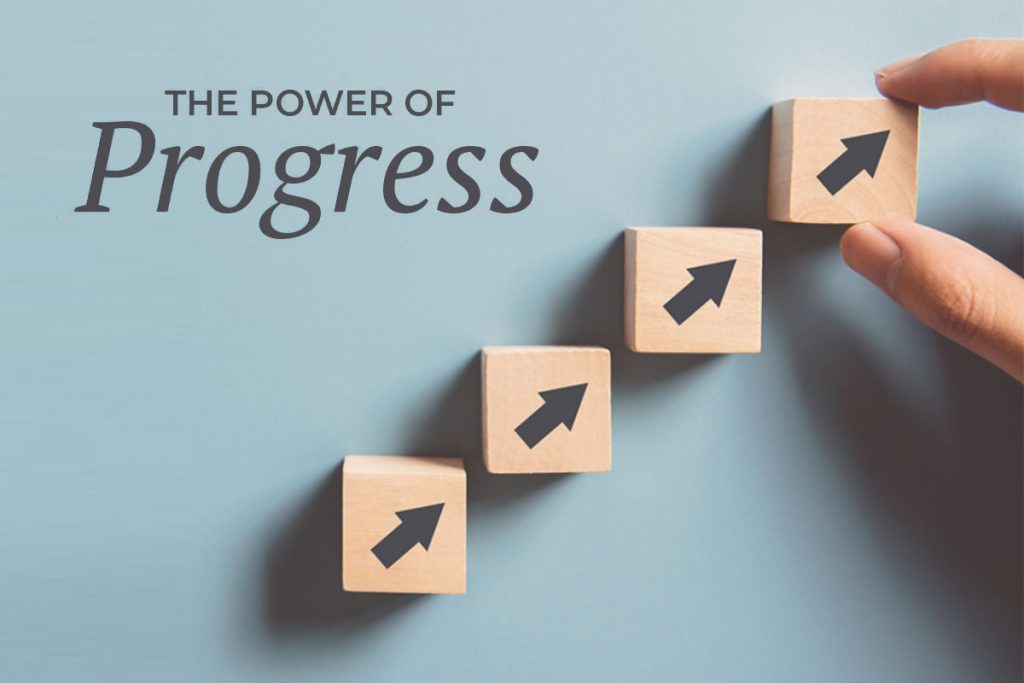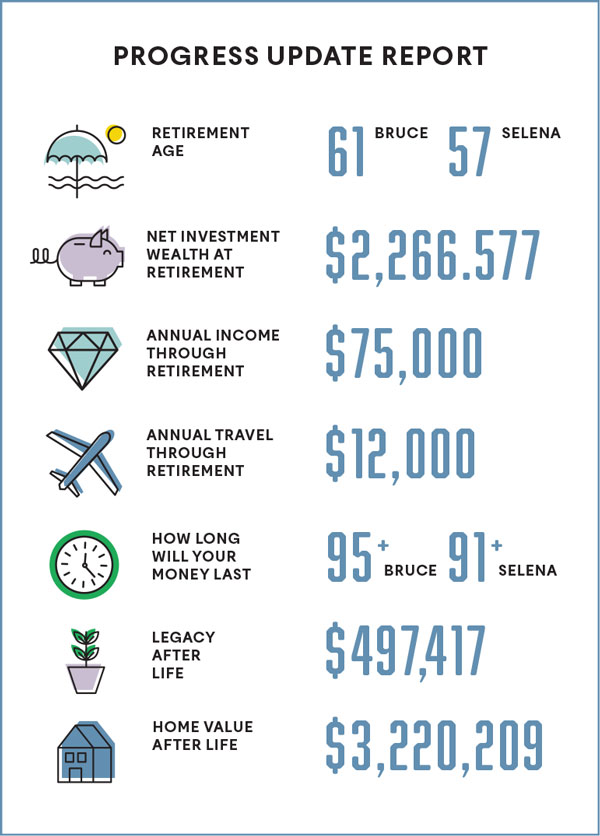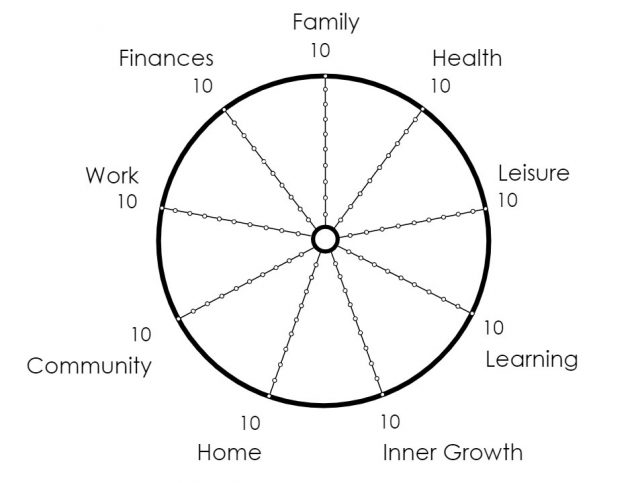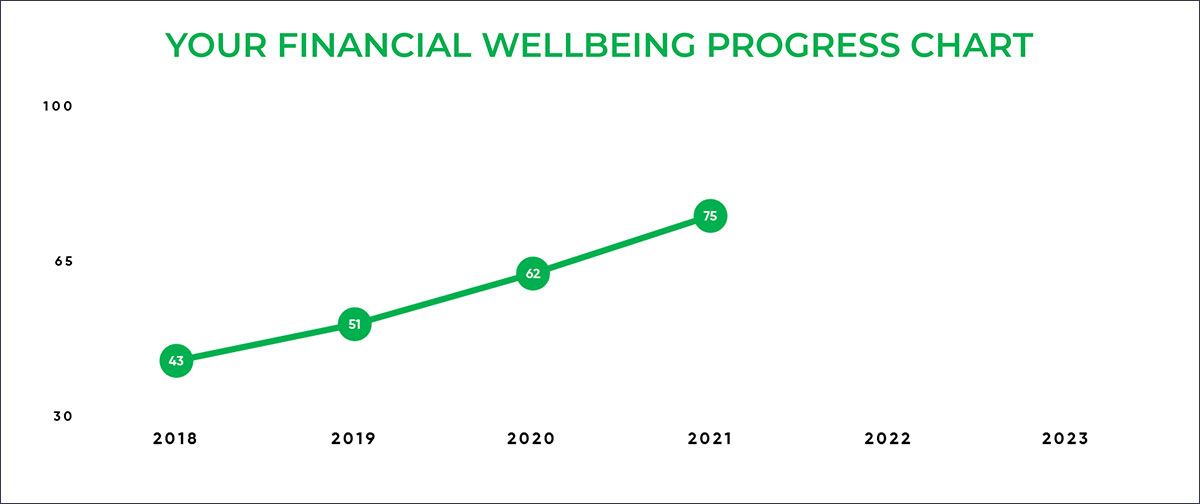Recently I was at a basketball coaching course and the presenter asked all of us what we thought made our players happiest.
Unsurprisingly, ‘winning’ was the first place our minds all went.
He laughed and agreed that yes, winning does tend to make everyone involved happy. But interestingly, it’s not what makes players happiest. The two things that outranked winning for the players were:
- Knowing they were contributing strongly to the team
- Knowing they were improving and making progress as a player
This second one is interesting to me as a financial advisor as I see this play out often with our clients. For them to feel happy, they don’t need to have already achieved ‘financial freedom’ or ‘financial independence’. They just need to feel like they are making progress towards their goals.
That’s why we do a progress report for all our clients every year. Those clients tell us there are two pages in the report that are most valuable to them every year.
The first is a quantitative snapshot for the client that compares their current position to where they were a year earlier:
The second is a qualitative measure we provide by asking questions about how they feel about their finances in nine domains:
In a client’s first year with us, they might be really satisfied with how things are going in two to three domains. After a year, their satisfaction levels may be high for four or five, then six to eight. This is a great way to measure progress in areas that are hard to quantify with numbers.
It also gives a good indicator of how people are feeling about both life and money.
Two forces for progress
But what if you’re not a client of ours?
Or what if you want to activate and feel the power of progress in other aspects of your life?
Research has shown two core forces need to be at work:
- Catalysts
- Nourishers
Catalysts
Catalysts are actions/items that take you in the direction you want to go. They include things like:
- Goal setting
- Appropriate allocation of resources (like time and energy)
Let’s say you’d like to be fitter. Catalysts for making progress in that regard would be:
- Earmarking a goal – like ‘be able to run 5km without stopping’
- Allocating resources appropriately – making sure you’re in bed at 10pm three nights a week so that you can get up at 6am three mornings a week to do the ‘Couch to 5K’ program you’ve downloaded to help you reach your goal
Let’s say you’re the coach of a basketball team. You might:
- Target goals in a game that have nothing to do with the final scoreline. (Things like ’10 rebounds per quarter’ or ‘fewer than 5 turnovers per quarter.)
- Allocate resources appropriately by giving yourself half an hour before finishing work for the day and turning up to coach your team. This will ensure you’re able to bring good energy to the training session you’re about to take (rather than taking the stress of work into the session).
Nourishers
Nourishers are acts of support from other people. They include things like:
- Encouragement
- Respect
- Recognition
- Emotional comfort
- Opportunities for connection
With regard to your fitness goal, it’s helpful to have:
- Friends or family members who respect your goal and actively encourage you to achieve it
- People to train with and work with towards this common goal (people who will also recognise the small improvements you’re making in your fitness)
- People who can give you a boost when you’re having a day where it feels like progress isn’t happening.
A basketball coach might get nourishment by:
- Being part of a club that respects their time and effort in coaching the team and recognises the commitment required
- Having other coaches to get advice from and receive encouragement from
- Having a supportive parent and player group who thinks they’re doing a great job and communicates this well.
Leveraging the power of progress to increase happiness
Beyond having catalysts and nourishers in your life, there are three more things you can do to ensure you’re getting the happiness benefits that come from feeling like you’re making progress in life:
1. Have a clear roadmap for where you are going
That’s why programs like Couch to 5K are so effective. They provide a clear path from where you are now to where you want to be. (It’s also why ongoing financial advice is effective. Professional financial advisors will always look at where you are now and where you want to be before providing you with a plan for getting there.)
2. Celebrate small wins
Every Couch to 5K session builds a tiny bit on the one before it. And participants get the magical boost each time of having gone a little bit further than they did the session before. These ‘small wins’ provide a huge amount of momentum and keep participants moving purposefully towards the end of the program.
3. Make progress visual
As you saw earlier in this article, we work hard to provide clients with visual representations of the progress they are making because we know how energising it is. Making progress visual in any aspect of your life is easy. You can use habit tracking apps like Streaks. You could put a calendar on your fridge when doing ‘Dry July’ and mark off each alcohol-free day as it passes.
The final word
We, humans, are notorious for only ever looking ahead to where we want to be and not taking the time to appreciate how far we’ve come. Hopefully, this article has given you some actionable ways to put the power of progress to good use and help ensure you’re giving yourself a solid happiness boost every day, not just when you tick off massive goals.



